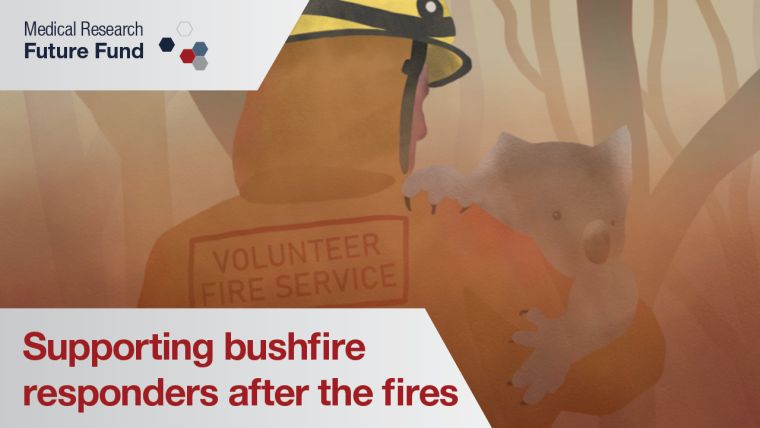
Impacts of the 2019-20 Black Summer fire season on first responder mental health
The 2019-20 Black Summer fire season was the most intense and sustained fire season Australia ever experienced. An estimated 39.8 million hectares burned. Three billion animals were killed or displaced. Three thousand homes were destroyed, and 33 people lost their lives.
Dr David Lawrence, University of Western Australia, leads 'After the Fires'. This project is the largest ever pre- and post-bushfire survey of the mental health impacts of responding to bushfires.
Across Australia, David found that 82,480 people responded to the fires. Of these, 17,980 were professional firefighters. Volunteers made up 64,500, or 78%, of first responders. David surveyed the firefighters twice - one and two years after the fires.
Many first responders faced traumatic or life-threatening events during the fires. More than 5000 reported a high need for mental health support. This included probable PTSD and thinking about suicide.
David is still analysing data from the second survey. This data shows that two years after the fires, only 1000 people had received enough mental health support to meet their needs.
'This is concerning because mental health problems escalate over time. Untreated symptoms progress and serious disorders can emerge many years later,' David says. 'By then they are much harder to treat.'
Impacts of longer, more destructive bushfire seasons
During the 2019-20 Black Summer bushfires, on average, volunteers spent 3 weeks fighting fires with 9 nights away from home. Paid firefighters spent 4 weeks fighting fires with 14 nights away from home. 30% of paid firefighters volunteered for another 3 weeks fighting fires.
The warming and drying climate increases the risk of even longer, more destructive bushfire seasons in the future. This will expose first responders to more frequent traumatic events.
'We found mental health risks for first responders are cumulative. The more traumatic events they experience over time, the more they need mental health support,' David says.
Mental health services support resilience and coping
David's 2018 'Answering the Call' report showed that professional first responder services across Australia have mental health support services for staff. Since then, professional firefighter agencies have continued to improve their workplace mental health programs.
After the Black Summer fires, there was a reduction in mental health issues among staff, compared to 2018. But among volunteers there was little change.
Resourcing volunteer agencies
'In extreme fire events like Black Summer there are so many fires in such a large area. We need a workforce more than 4 times bigger than all the paid firefighters in Australia,' David says.
'Volunteers do the same work as highly trained and experienced paid firefighters. But the volunteers don't have the same amount of training or resources.
'Volunteer agencies are struggling to buy enough masks and personal protective equipment, to keep fire trucks up to date, and buy firefighting aircraft. They don't have a lot of inhouse, coordinated mental health support.
'In a warming climate, we will have more volunteers involved in dangerous and traumatic fire situations on a more regular basis. We need to ensure our volunteer fire fighting force is sustainable. We must prevent burnout and other mental health issues,' David says.
Changing the culture
David hopes his research will help bring about change.
'We need to make sure that we can support communities to be able to look after themselves. Volunteer fire fighters need to get mental health support if they need it, so they can continue the important work that they're doing for us.
'Changing the culture is a process. It's going to take investment, planning, and time.'
'After the Fires' is supported by $650,000 from the Medical Research Future Fund.
Resources
Head to Health - I need help now






